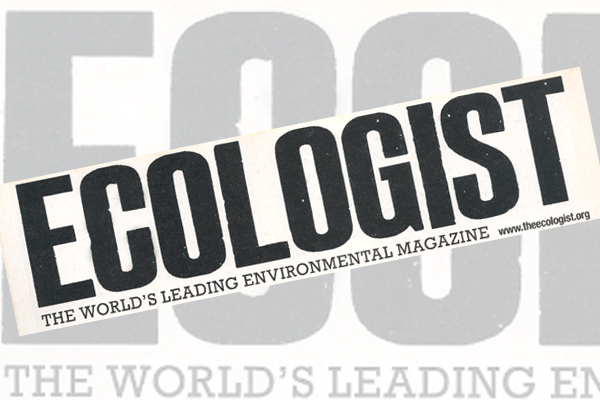Editorial: Going for the Green

A new green tide is sweeping over us. Thanks to January’s presidential debates in the US, politicians everywhere are meeting the grey news of a collapsing economy with the promise of a bright new era of green jobs.
I should be jumping for joy that this issue has been placed on the political agenda, and part of me truly is, because it’s a discussion whose time has come. Yet this green flag waving left me more than a little conflicted, primarily because of the lack of depth with which the candidates have gone into the concept of green-collar jobs. ‘Green-collar job’ has entered the modern lexicon before its true meaning has been assessed, and the superficiality of the debate raises many more questions than it answers.
The premise seems straightforward enough: there is a lot of green work to be done if we are going to save the planet, work that will translate into lots of green jobs. This, in turn, will increase employment and do good for the planet as well. Win-win.
A green-collar job is largely a blue-collar job – in the manufacturing or service industries – dyed a different colour. In the current market there are a lot of people already doing green-collar jobs. From public transport and bicycle repairs to landscape gardeners, cleaners, child-minders and people who produce and fit home insulation, ‘green jobs’ are all around us – though they don’t seem to feature highly in the politicians’ new green vision.
Perhaps in the new world there will be more of these kinds of jobs, but the notion that these will be on top of all the other jobs that exist is probably misleading. The ‘plus’ of any proposed new green jobs needs to be weighed against the ‘minus’ of planet-polluting jobs that won’t be able to exist when the oil runs out – manufacturers of every kind of plastic tat, sweatshop labourers, 4X4 manufacturers and pesticide and chemical companies, to name but a few. Before we start celebrating these new green jobs, let’s get some realistic estimates of the actual bottom line for employment.
Many progressive economists feel that a truly sustainable society won’t be able to provide full employment, especially in a world where we juxtapose a population that is growing exponentially with a world that is rapidly running out of basic resources. That is a scary enough equation, but consider what a sustainable society really means. It is a world where we don’t produce more than we need, or create more waste than the planet can absorb. It’s one where there is less to buy and so fewer services required, and where we as individuals begin to take responsibility for so many of the skills (from repairing taps to baking bread to growing some of our own food) that modern society has dictated we farm out to others.
Then there is the real elephant in the room – growth. We can’t separate the jobs we do from the economic system in which they exist. Our economic system depends on growth and, broadly speaking, growth depends on the continual consumption of goods and services. The green jobs our politicians are talking about are ones that seem to fit seamlessly into this system. But a truly green job has a fundamentally different basis, emphasis and function in the world to the ones we currently do. Solar panels, for instance, are not mobile phones. You don’t install them and then six months later upgrade to newer, snazzier ones with prettier colours and more functions.
Green manufacturing jobs are based on manufacturing goods with real longevity – thus the potential for growth is more limited. What happens to our economic system when growth is taken out of the equation?
Green jobs are also a threat to the concept of globalisation, since by their very nature they are local and small. The all-important economies of scale of the new green world have yet to be addressed fully.
So perhaps before we can talk about re-engineering green jobs we should get to grips with what that really means.
It’s a scary conversation and one that you are not likely to hear politicians on either side of the pond engaging in, especially when canvassing for votes. Nevertheless, the issue of what our economy is going to look like in 40 years’ time is hugely important, vastly complicated and deeply related to the kinds of jobs we will be able to do in the future. It desperately needs to be dragged out on to a more comprehensive platform for discussion.
- This editorial first appeared in the March 2008 edition of the Ecologist.












